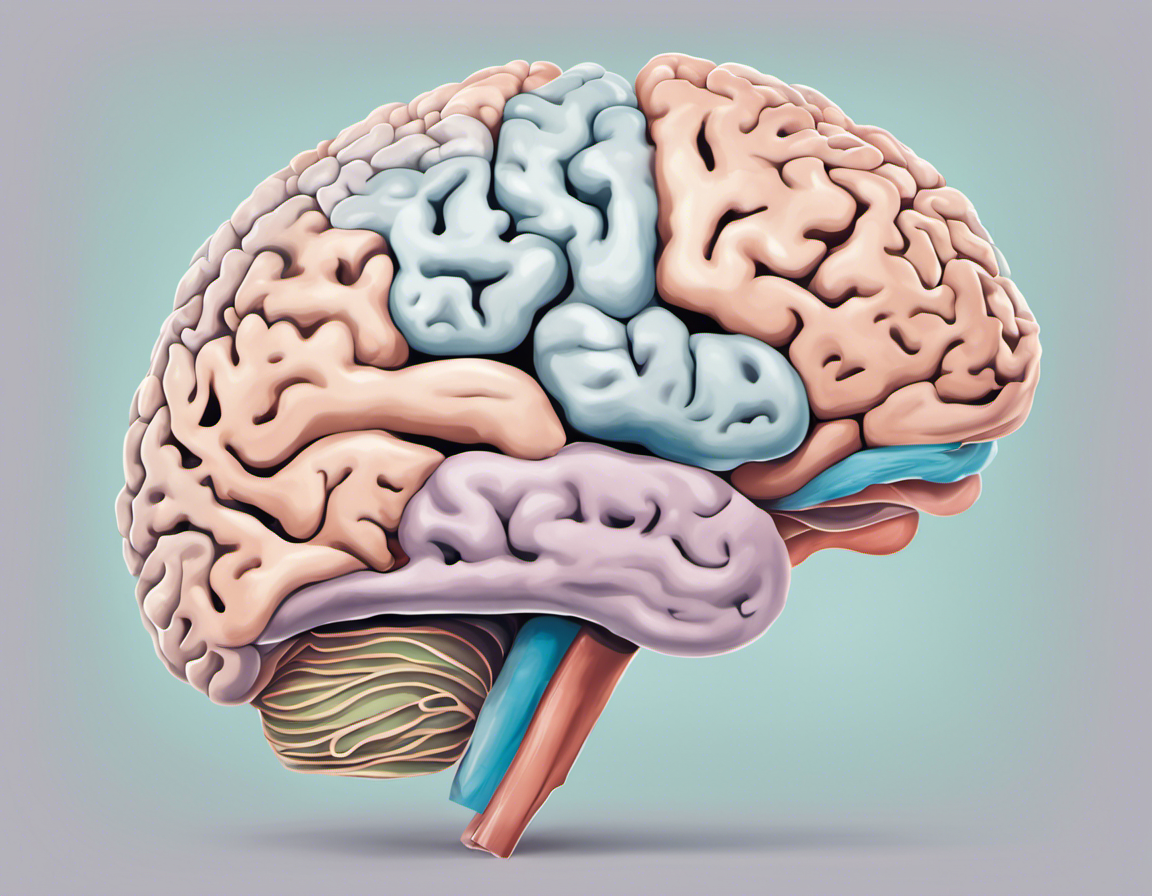Unraveling ADHD: Demystifying Myths, Overcoming Challenges & Thriving

Imagine being unable to sit still, follow a conversation, or finish a task once you’ve started. Imagine feeling an internal restlessness that can’t be calmed, an ongoing whirlwind of disorganized thoughts racing through your mind. This is the daily reality for millions of people living with Attention-Deficit/Hyperactivity Disorder (ADHD), a highly misunderstood neurodevelopmental disorder marked by symptoms like inattention and impulsivity.
In a world that often unfairly labels people with ADHD as lazy or undisciplined, it’s essential to challenge widespread misconceptions and shed light on the intricacies of this complex disorder. This article aims to dispel the myths surrounding ADHD, confront the stigma often associated with it, and affirm that a diagnosis doesn’t mean an imposition of limitations but an invitation to understand one’s unique wiring.
Through a comprehensive look at the impacts faced by individuals with ADHD and an exploration of treatment and management strategies, we seek to present actionable coping remedies. We will also dissect available medications, their benefits, and potential side effects while delving into alternate approaches like behavioral interventions and therapists’ critical role in managing ADHD.
The journey with ADHD may be fraught with challenges, but know that thriving is not outside grasp. Whether you’re a parent, educator, health professional, or someone striving to understand your condition better, this guide offers valuable insights into making the journey less overwhelming and hopeful. Join us as we unravel ADHD – moving from debunking myths to capturing potential ways to overcome obstacles and thrive despite the disorder.
Understanding ADHD
In a bid to advance public knowledge and comprehension about ADHD, it’s paramount that we start from the basics. Taking a deep dive into this neurodevelopmental disorder’s essence and attributes, you will learn its real implications.
What is ADHD: Definition and Symptoms
ADHD, an acronym for Attention-Deficit/Hyperactivity Disorder, is a pervasive neurodevelopmental disorder principally characterized by persistent patterns of inattention, impulsivity, and, sometimes, hyperactivity. People grappling with this condition often experience trouble managing time, paying attention, organizing tasks, or remembering details – which can significantly affect their work, home, or school life. There are specific hallmark symptoms associated with ADHD, such as forgetfulness, difficulty staying focused on one task, lack of patience, and frequent daydreaming.
Neurodevelopmental Disorder: A Closer Examination
Peeling back the layers of this complex condition, let’s zero in on its core nature – a neurodevelopmental disorder. It implies that ADHD involves brain functions and development. Cutting-edge scientific research indicates specific brain structure differences in individuals diagnosed with this disorder. This highlights how ADHD isn’t a mere deficiency in willpower or discipline but is rooted in brain chemistry and functional neuroanatomy.
Common Misconceptions: Debunking ADHD Myths
For various reasons, ADHD is often shrouded in misapprehensions and myths – potentially due to its complexity or prevailing stereotypes. Common illusions include the notion that ADHD affects only children—when, in reality, this disorder can persist into adulthood—or that people with ADHD are just lazy—which oversimplifies a rather complex neurological condition.
The Stigma around ADHD: Addressing Prejudices and Assumptions
Highlighting the prejudice against ADHD will help to dispel the negativity surrounding it. Cultural stigma attached to such a diagnosis may exacerbate the distress faced by those affected. The pathologization of natural behavioral differences or labeling them as ‘disruptive’ can impose a damaging stigma. By actively challenging such assumptions, we can hope to cultivate a more inclusive and understanding society towards individuals with ADHD.
The Impact of ADHD on Individuals: Challenges and Coping Strategies
Attention-Deficit/Hyperactivity Disorder (ADHD) can significantly influence one’s life, impacting areas such as personal relationships, academic performance, career development, and overall well-being. These challenges underscore ADHD as not merely a lack of focus or hyperactivity. It’s about living with a distinctly functioning brain and navigating a world that often misunderstands this difference.
However, many individuals with ADHD have learned to cope, devising strategies focusing on their strengths instead of perceived weaknesses. Techniques such as organizing thoughts through visual aids or representing ideas in mind maps, taking regular breaks during tasks, implementing physical activity into their routine, and practicing mindfulness can significantly help manage symptoms.
ADHD and Life Quality: Exploring its Effects
Living with ADHD can often feel overwhelming when negative impacts outweigh perceived gifts. This disorder may lead to performance inconsistency, struggles with self-organization, procrastination problems, and difficulties in managing frustration or stress. However, by dispelling myths about ADHD and focusing on these challenges from an empathetic perspective, we can better comprehend its impact on life quality.
Treatment and Management: Journey to Better Living with ADHD
Addressing ADHD involves comprehensive treatment strategies encompassing medication management, behavior interventions, and lifestyle adjustments – all aimed at alleviating symptoms and improving life quality. It’s imperative to remember that each individual’s journey with ADHD is unique and thus requires a tailored approach.
Understanding ADHD Medications: Benefits and Potential Side Effects
Pharmacological intervention remains a cornerstone in ADHD treatment. Stimulant and non-stimulant medications are widely prescribed and have shown efficacy in managing significant symptoms. However, weighing the benefits against potential side effects is essential. Common side effects may include appetite reduction, sleep disturbances, and mood changes. Always discuss possible contraindications or interactions with healthcare providers before starting a new medication.
Various Approaches to ADHD Management: Behavioral Interventions and Therapies
While medication is pivotal in managing ADHD symptoms, non-pharmacological methods are equally valuable. For example, cognitive-behavioral therapy (CBT) can help individuals develop coping strategies for typical ADHD challenges like procrastination or emotional dysregulation. Other forms of therapy, such as mindfulness-based interventions, have shown promise in reducing impulsivity and increasing attentive behavior.
The Role of Support Groups and Mental Health Professionals in Managing ADHD
Tackling ADHD is not an individual endeavor. Community support in the form of support groups can be invaluable, offering emotional backing and practical advice from people who understand the journey first-hand. Mental health professionals such as therapists or psychiatrists can also offer expert guidance on specific coping strategies and treatment options. They are vital in monitoring treatment progress and adjusting therapeutic plans when necessary.
Conclusion: Living Positively with ADHD
(Your outline ends here. Do not write anything for the conclusion section as per the instructions.)
Conclusion
ADHD is not a life sentence of chaos or underachievement but rather a nuanced and complex neurodevelopmental condition. Every individual with ADHD has strengths, talents, and immense potential that can be unlocked with understanding, care, support, and strategic coping strategies.
From breaking down ADHD misconceptions to understanding its implications in different life aspects of life, we’ve embarked on an enlightening journey. We explored various proven coping mechanisms, such as focusing on organizational skills and leveraging cognitive-behavioral therapy. We also delved into treatment options and the role of medication, highlighting the importance of awareness about their benefits and possible side effects.
ADHD Content Overview | Section | Content | |—|—| | Introduction | Imagine being unable to sit still, follow a conversation, or finish a task once you’ve started. This is the daily reality for millions of people living with Attention-Deficit/Hyperactivity Disorder (ADHD). | | Understanding ADHD | - Definition and Symptoms - Neurodevelopmental Disorder - Debunking ADHD Myths - The Stigma around ADHD | | Impact of ADHD | - Challenges and Coping Strategies - ADHD and Life Quality | | Treatment and Management | - Understanding ADHD Medications - Various Approaches to ADHD Management - Role of Support Groups and Mental Health Professionals | | Conclusion | ADHD is not a life sentence of chaos or underachievement but rather a nuanced and complex neurodevelopmental condition. |
But our exploration doesn’t stop here. Living positively with ADHD is a continuous journey of learning and adaptation. It’s imperative that we keep exploring newer approaches, technologies, and therapies.
Undoubtedly, nurturing a supportive community for individuals with ADHD and fostering acceptance at academic institutions, workplaces, and society is our collective responsibility. Empowered with understanding and acceptance, every person with ADHD can shape their path! To continue researching, stay curious, and advance towards a positive life with or without ADHD.




Comments